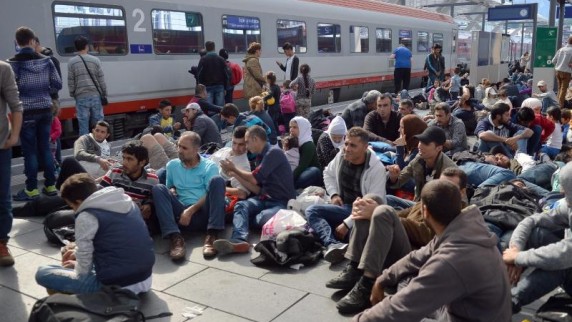By Brian Casey McDermott
3 Interculturality and Multiculturality
Welsch continues on to say in his essay that the newer concepts of interculturality and multiculturality are nearly as dissatisfactory and unproductive as the classical concept since they conceptually presume it. Both concepts will be briefly viewed and considered in connection with Welsch’s essay.
3.1 Interculturality
The perceived idea from the concept of interculturality is that each cultural is represented as its own sphere or island which leads to the idea that they can only inevitably collide with other cultural spheres or islands creating cultural racism and other hostile and negative effects. It tries for all intents and purposes to find a way of interaction between cultures in spite of this collision. It cannot, however, provide any valid solution since the separate sphere or island idea induces intercultural communication problems in the first place. Along these lines it doesn’t get to the root of the problem in order to solve it.
3.2 Multiculturality
The concept of multiculturality searches for a solution to the problems which appear between different cultures that exist within one single society. Its aim is to encourage tolerance and understanding between these different cultures and thrives for opportunities where conflicts can either be avoided or handled in a productive way. However, because this concept is also based on the assumption that cultures are their own homogenous spheres or islands that will eventually collide with one another it shows that multiculturality can neither accomplish a mutual understanding between the various cultures nor a transgression of separating barriers. By taking up the classic understanding of culture which underlies today’s phenomena of separation and ghettoization, the concept of multiculturality threatens to give rise to regressive tendencies. The image of cultures as solitary spheres or islands no longer applies today and both newer concepts of interculturality and multiculturality still adhere to this old perception.
___________________________________________________________________
Contents
2 Traditional Concept of Single Cultures
2.1 Welsch’s Critique of The Traditional Concept of Single Cultures
3 Interculturality and Multiculturality
3.1 Interculturality and Welsch’s Critique
3.2 Multiculturality and Welsch’s Critique

Pingback: Transculturality and the Refugees in Germany (VII) | Galicien Zentrum der Universität Heidelberg
Pingback: Transculturality and the Refugees in Germany (V) | Galicien Zentrum der Universität Heidelberg
Pingback: Transculturality and the Refugees in Germany (VI) | Galicien Zentrum der Universität Heidelberg